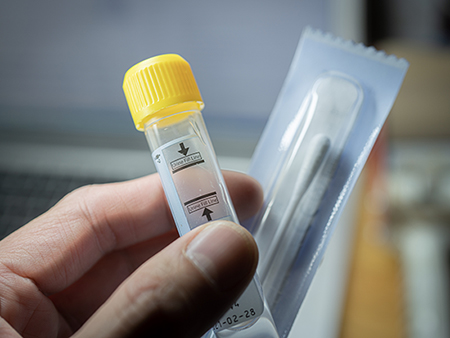 A new rapid sexually transmitted infection test developed through research done at UAB will help diagnose and treat patients in real time moving forward.Rates of chlamydia and gonorrhea are continuing to increase in the United States, as barriers in detection and testing of the infections in turn costs the United States health care system billions of dollars.
A new rapid sexually transmitted infection test developed through research done at UAB will help diagnose and treat patients in real time moving forward.Rates of chlamydia and gonorrhea are continuing to increase in the United States, as barriers in detection and testing of the infections in turn costs the United States health care system billions of dollars.
However, as published in the Journal of the American Medical Association Network Open, new study results out of the University of Alabama at Birmingham indicate that a rapid (30-minute) chlamydia and gonorrhea test at the point of care is effective and can support same-day testing and treatment strategies for affected patients. This could be a game-changer in STI detection and treatment; currently, samples are sent off for laboratory confirmation, which often allows patients to fall out of care or treatment planning.
In the cross-sectional study of more than 1,500 women and 900 men, vaginal samples from women and urine samples from men were collected in clinics where STI testing is routine, such as HIV, family planning, and obstetrics and gynecology clinics. Performance of the point-of-care testing compared well with that of laboratory-based diagnostic testing.
As a result, the U.S. Food and Drug Administration has granted clearance for vaginal swab and male urine point-of-care testing, a move that Barbara Van Der Pol, Ph.D., MPH, director of UAB’s STD Diagnostic Laboratory and principal investigator of the study, explains will benefit patients and providers tremendously moving forward.
“What these results indicate is that point-of-care testing is now a possibility that will enable patients to receive critical care and treatment at the point of diagnosis,” Van Der Pol said. “Never before have we been able to test and treat patients in one visit. These findings will not only help to change how providers treat chlamydia and gonorrhea, but how we are able to detect and manage other STIs in vulnerable populations moving forward.”
